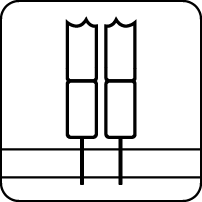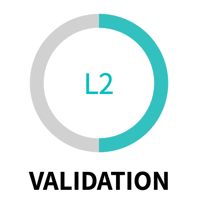 |
TCR sequence determination by TraCeR
|
 |
PUBLISHED ON: MAY 10, 2016 | REV A
SUPPORTED IFCS: mRNA-Seq IFC
NUMBER OF IFC RUNS: 5
Overview
This protocol is intended to produce data from T lymphocytes compatible with T cell receptor (TCR) sequence determination using the TraCeR computational method, as well as standard gene expression analysis. (See the Additional Documents section to download the TraCeR application note.) The single-cell cDNA is generated with the C1 Single-Cell mRNA Seq protocol (PN 100 7168). The TCR sequence data is obtained from the sequenced samples using the TraCeR analysis pipeline and can be applied to both human and mouse datasets. The single-cell TCR sequences can then be associated with the single-cell gene expression data for combined clonotype and phenotype information with single-cell resolution.
Protocol: TCR sequence determination by TraCeR | Duration (H:M): 10:00

Tested Primary Cells or Cell Lines
Cell Name |
Cell Type |
Source |
|---|---|---|
| Mouse splenic CD4+ effector and memory T lymphocytes | Primary mouse splenocytes | Primary |
Performance
To demonstrate and validate our method for TCR sequence reconstruction we analyzed single-cell mRNA sequencing data from 272 flow-sorted CD4+ T cells isolated from spleens of C57BL/6 mice. The samples were sequenced on an Illumina HiSeq 2500 System sequencer using paired-end 100 bp reads. We were able to detect at least one productive alpha chain in 74–96% of cells, a productive beta chain in 88–96% of cells and paired productive alpha/beta chains in 70–93% of cells. An assessment of the sensitivity with varying read depth and read length can be found in Stubbington, M.J., Lonnberg, T., Proserpio, V. et al. "T cell fate and clonality inference from single-cell transcriptomes." Nature Methods 13 (2016): 329–32. For qPCR orthogonal validation we took 185 cells for which we had RNA seq data and used full-length SMART-Seq derived cDNA as template material in PCR reactions. We designed the PCR to amplify a region from within the V gene up to the constant segment. In total, 485 recombinant sequences were identified by qPCR, mRNA seq, or both approaches, of which 371 (76.5%) were concordant. A full discussion of the orthogonal validation is available in the Supplemental Materials of Stubbington, M.J. et al. Nature Methods 13 (2016): 329-32.
Resources
Publications or Articles
For Research Use Only. Not for use in diagnostic procedures. Patent and License Information: www.standardbio.com/legal/notices. Trademarks: www.standardbio.com/legal/trademarks. Any other trademarks are the sole property of their respective owners. ©2025 Standard BioTools Inc. All rights reserved.
